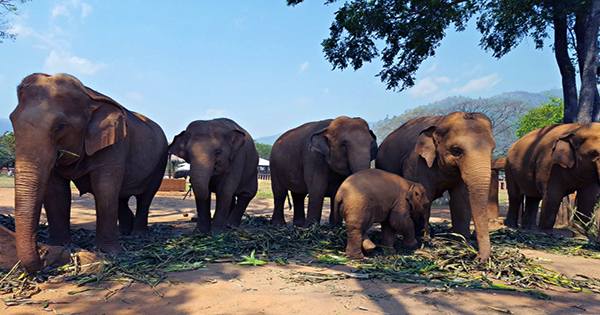In many ways, cancer is a disease of chance. Certain habits – such as smoking and substance abuse – or genetic predisposition will increase that chance, but every time a cell replicated, something goes wrong, causing the cells to regenerate out of control and turn into cancer. Therefore, it seems logical that two things would increase the chances of cancer: the number of replicating cells, i.e. the size of the organism; And how long the organism survives, which provides more replicas to be surprised. However, if that is the case, why do not elephants get cancer all the time?
In a new study published in the journal Life, scientists have discovered that elephants – and possibly other large terrestrial mammals – have shut down the entire arsenal of tumor-suppressing genes in developing tumor cells. Copies of these genes found in greater numbers than in other animals and may develop alongside their giant bodies to keep the species growing. The authors now believe that the secrecy of the new cancer therapy may lie in the genomes of larger animals.
“By determining how large, long-term species evolved better ways to combat cancer, we can learn something new about how evolution works and hopefully find ways to use that knowledge to inspire new cancer treatments,” says Post Doctoral researcher Juan Manuel Vazquez. The University of California, Berkeley said in a statement.
The study involves exploring the genomes of elephants in search of tumor-suppressing genes, with additional copies to discover what could enhance their protection. Previous research has highlighted that elephants mimicked a well-known and important tumor suppressor gene TP53, which prevents cells from uncontrolled division. For further research, the researchers wanted to examine whether it was part of an isolated or broad evolutionary trend in TP53.
“Is the trend normal? Alternatively, is the trend specific for a gene? We found that this is common: elephants have lots and lots and many extra copies of tumor suppressor genes, and they all probably contribute something to cancer prevention says Vincent Lynch, an assistant professor of biological sciences at the University of Buffalo.
Interestingly, elephants are not the only ones with innate defenses against cancer. Other aphrodisiacs (including Elephant Crew, aardvarks, and Dugong) appear to have extra copies of the tumor suppressor gene. Despite being relatives of elephants, many of these animals are very small, implying that the imitations originated before or during the evolution of the giant body. However, the elephants certainly came to the top. Across the Proboscidea (African shrub elephant, Asian elephant and African forest elephant) genomes they examined, researchers identified 12 unique rich pathways directly linked to cancer. These found only in large-bodied mammals, probably helping their boy development.
Unfortunately, excess copies of some tumor-suppressing genes can also be harmful to the animal, representing a variety of evolutionary businesses. They may protect against cancer, with increased expression of TP53 in rats being associated with a variety of other diseases, such as premenstrual syndrome. Researchers believe that this does not happen in elephants because ducks are under adequate gene control to prevent excessive expression, preventing negative effects.





